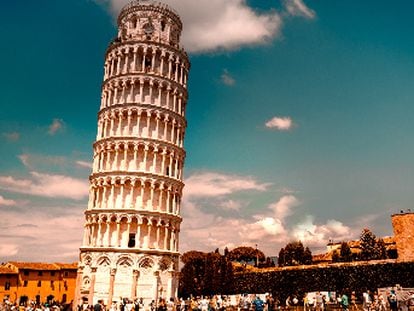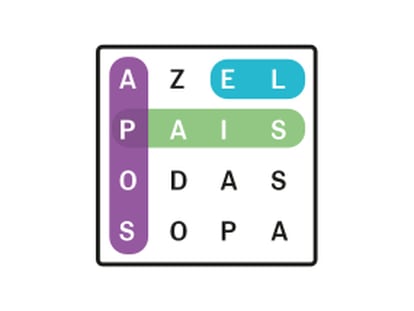La crisis económica de Venezuela
Cable en el que un directivo de PDVSA admite los problemas de calidad de la compañía
En 2009, la embajada en Caracas informa de los que los problemas de control de calidad están suponiendo importantes costes para la petrolera estatal venezolana
| ID: | 240447 |
| Date: | 2009-12-17 17:28:00 |
| Origin: | 09CARACAS1567 |
| Source: | Embassy Caracas |
| Classification: | CONFIDENTIAL |
| Dunno: | |
| Destination: | VZCZCXRO9415 RR RUEHAO RUEHCD RUEHGD RUEHHO RUEHMC RUEHNG RUEHNL RUEHRD RUEHRS RUEHTM DE RUEHCV #1567/01 3511728 ZNY CCCCC ZZH R 171728Z DEC 09 ZFF3 FM AMEMBASSY CARACAS TO RUEHC/SECSTATE WASHDC 0169 INFO OPEC COLLECTIVE WESTERN HEMISPHERIC AFFAIRS DIPL POSTS RHEBAAA/DEPT OF ENERGY WASHINGTON DC RHEHAAA/NATIONAL SECURITY COUNCIL WASHINGTON DC RHEHNSC/WHITE HOUSE NATIONAL SECURITY COUNCIL WASHINGTON DC RHMFISS/HQ USSOUTHCOM MIAMI FL RUCPDOC/DEPT OF COMMERCE WASHINGTON DC RUEATRS/DEPT OF TREASURY WASHINGTON DC |
C O N F I D E N T I A L SECTION 01 OF 02 CARACAS 001567 SIPDIS ENERGY FOR ALOCKWOOD AND LEINSTEIN, DOE/EIA FOR MCLINE HQ SOUTHCOM ALSO FOR POLAD TREASURY FOR MKACZMAREK COMMERCE FOR 4332/MAC/WH/JLAO NSC FOR DRESTREPO AND LROSSELLO AMEMBASSY BRIDGETOWN PASS TO AMEMBASSY GRENADA AMEMBASSY OTTAWA PASS TO AMCONSUL QUEBEC AMEMBASSY BRASILIA PASS TO AMCONSUL RECIFE E.O. 12958: DECL: 2019/12/17 TAGS: EPET, EINV, ENRG, ECON, CH, VE SUBJECT: Venezuela: PDVSA Experiencing Quality Control Problems CLASSIFIED BY: Darnall Steuart, Economic Counselor, DOS, Econ; REASON: 1.4(B), (D) 1. (C) SUMMARY: PDVSA is experiencing quality control problems with refined product and upgraded crude oil and is bearing significant costs due to these problems. The Venezuelan national oil company has prioritized the supply of gasoline and other petroleum products to its domestic market over its international clients. One PDVSA executive estimated that exports to China of fuel oil average 330,000 barrels/day and 132,000 barrels/day of crude petroleum. He also claimed that some 70% of its current 100,000 workforce are not involved in PDVSA's core petroleum business. END SUMMARY. Problems with Crude Oil and Petroleum Product Quality --------------------------------------------- ---------------------- ------- 2. (C) According to PDVSA XXXXXXXXXXXXX, PDVSA is experiencing quality control problems with refined product and upgraded crude oil that it did not experience five years ago. During a meeting with Petroleum AttachC) (PetAtt) on December 15, XXXXXXXXXXXXX stated that his office receives on average three quality control complaints per week when PDVSA crude and petroleum product shipments arrive at foreign ports of destination and do not comply with contracted purchase specifications. He contrasted the foreign quality claims against quality problems discovered during loading of tankers in Venezuela, claiming that PDVSA discoveries of product quality problems are magnitudes greater. 3. (C) XXXXXXXXXXXXX, in order to resolve a quality control complaint from a foreign client, PDVSA often has to offer a sizeable discount on a future sale of crude or petroleum product to the foreign client. The cost to a foreign customer of handling the low quality Venezuelan shipments is significant. XXXXXXXXXXXXX claimed that it is more cost effective for PDVSA to correct the problems in Venezuelan ports before the tanker is loaded, accepting the demurrage costs of having the tanker idly waiting. XXXXXXXXXXXXX characterized these hidden costs as greatly affecting PDVSA's bottom line. He added that he believed that PDVSA is importing gasoline components from U.S. suppliers as well as from Brazil's Petrobras. 4. (C) XXXXXXXXXXXXX shared that PDVSA has prioritized shipments and transfers of crude and product domestically over the loading and export of crude and product to international customers, often paying high demurrage charges for tankers forced to wait outside the ports. XXXXXXXXXXXXX maintained that keeping the domestic Venezuelan market supplied with gasoline has increased the already substantial level of tanker traffic along Venezuela's coast due to the significant problems with PDVSA's refinery network. He noted that PDVSA's lack of financial resources and investment has prevented PDVSA from building a domestic pipeline network between the refineries, ports, and domestic distribution centers. 5. XXXXXXXXXXXXX Production and Export Estimates CARACAS 00001567 002 OF 002 -------------------------------------------- 6. (C) XXXXXXXXXXXXX, who claims to have access to all of PDVSA's export and production figures due to his position and function, estimated current PDVSA crude oil production at 2.3 million barrels per day. [NOTE: Press reports from December 15, reported that OPEC's current estimate of Venezuelan production is 2.3 million barrels per day. END NOTE.] XXXXXXXXXXXXX stated that on average PDVSA sends five very large cargo carriers (VLCC) or ten million barrels of fuel oil from its Curacao refinery each month to China. [NOTE: PetAtt estimates that 10 million barrels/month roughly equals 330,000 b/d. International press reports on December 17 citing Chinese Customs data for August through October 2009 indicate China imported only 68,000 barrels/day of heating oil from Venezuela over that time period. END NOTE.] Furthermore, each month PDVSA exports on average two VLCCs or four million barrels of crude oil from Puerta La Cruz to China. [NOTE: PetAtt estimates that 4 million barrels/month roughly equates to 132,000 b/d. END NOTE.] He added that PDVSA is not exporting much petroleum to PetroCaribe member states (no more than 150,000 barrels/day) and that the largest recipients are Nicaragua and the Dominican Republic. Finally, he said that PDVSA's exports to Europe are minimal and that it rarely sends a cargo to India. PDVSA Workforce -------------------------- 7. (C) Commenting on Minster Ramirez's comments that PDVSA's total workforce today is approximately 100,000 people, XXXXXXXXXXXXX claimed that only 30,000 are actually working in the traditional PDVSA areas of petroleum exploration, production, and refineries. [NOTE: In 2003, President Chavez ended a PDVSA workers strike by firing 20,000 workers of PDVSA's total employment of 40,000. Prior to the strike, Chavez had complained that PDVSA's employment was too high. END NOTE.] He claimed that PDVSA's expansion into other sectors, including downstream transportation and sales, and the GBRV missiones (e.g. the state-owned chain of discount food stores, Mercal and PDVal), etc., accounts for the other 70,000 workers. BIO ----- 8. XXXXXXXXXXXXX 9. (C) COMMENT: The impact of the deterioration on PDVSA's refineries on its quality control operations and the added costs of correcting shipments that are outside of contracted specification ranges or of making foreign customers whole could represent a significant risk for the national oil company. The relatively modest level of crude and fuel oil sales to China and Petrocaribe members underlines the continued importance of the U.S. as Venezuela's primary petroleum export market. The export figures to China are consistent with President Chavez's stated goal of seeking to develop alternative markets for Venezuelan petroleum products. END COMMENT. DUDDY |
Traduce este documento »
Traducción automática. Puede que el texto traducido no sea fiel al original
Únete a EL PAÍS para seguir toda la actualidad y leer sin límites.
Suscríbete_










































































